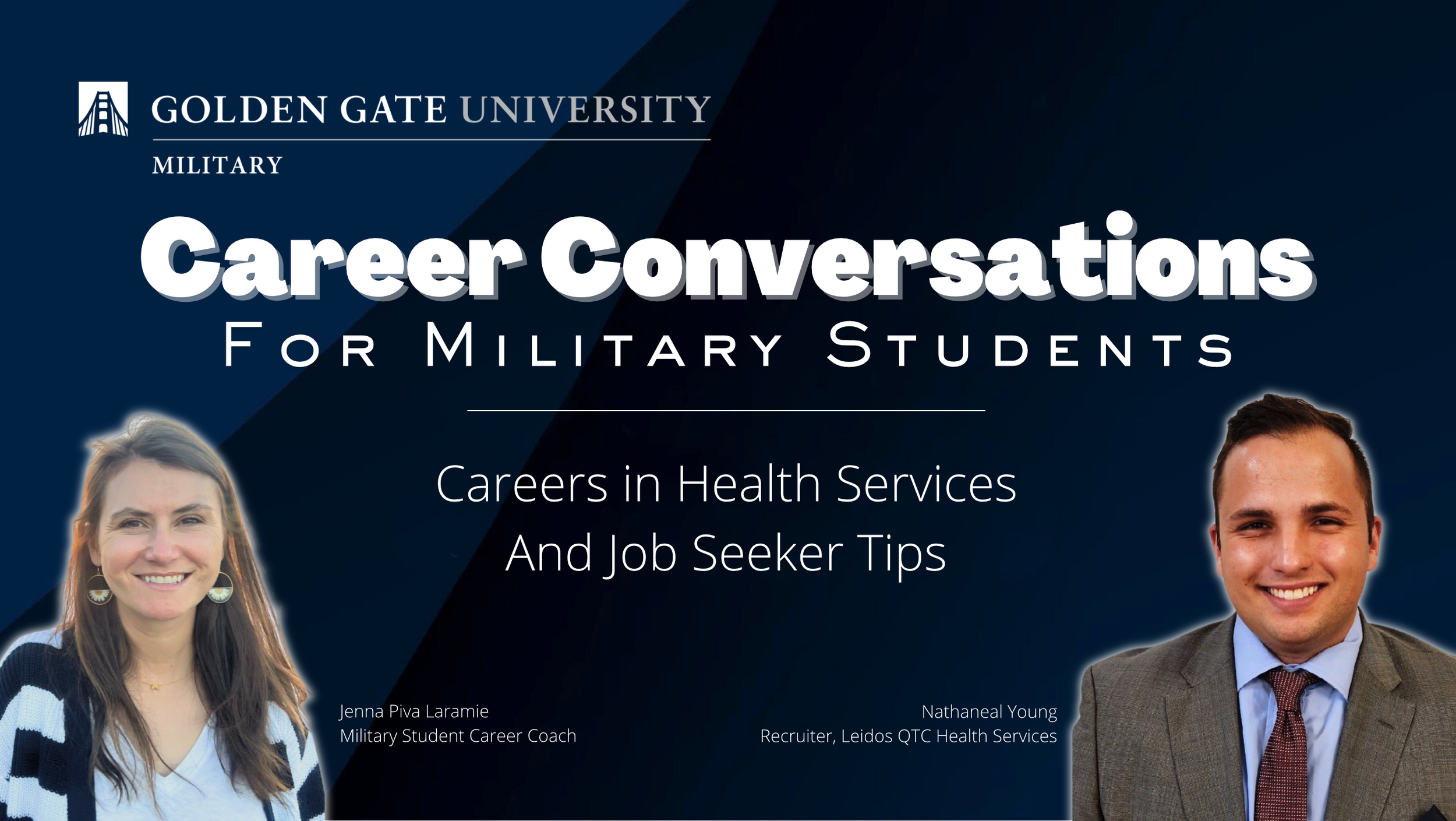Careers in Health Services and Job Seeker Tips
Navigating the transition from military to civilian life can be daunting, especially when entering the workforce. In a recent interview with Nathaniel Young, a Senior HR Recruiter at Leidos QTC Health Services and a military veteran himself, we explored valuable insights and tips for veterans making this transition. Whether you're aiming to stay in a familiar field or venture into uncharted territory, Nathaniel's experiences and advice can serve as a guiding light.
Introducing Nathaniel Young
Nathaniel Young is a dedicated Senior HR Recruiter at Leidos QTC Health Services, where he specializes in recruiting nurse practitioners, audiologists, and occasionally dabbling in corporate recruitment. Leidos QTC is renowned as the nation's largest disability and occupational examiner, primarily serving federal clients including the VA, FBI, and CIA. Nathaniel's military background as a Navy corpsman profoundly informs his work and his approach to recruiting veterans, leveraging shared experiences to enhance client care in healthcare settings.
The Value of Veterans in Healthcare
Nathaniel emphasizes the unique benefits veterans bring to healthcare roles, especially in organizations dedicated to serving military personnel. Veterans understand the nuances of military culture and can create a more comforting environment for fellow veterans seeking healthcare services. This shared understanding is instrumental in fostering trust and ensuring high-quality care.
Transition Tips for Veterans
Nathaniel shares three pivotal tips for veterans transitioning to civilian careers:
Upskilling and Certification: Before applying to new roles, Nathaniel stresses the importance of obtaining industry-specific certifications. Transitioning soldiers should arm themselves with relevant skills, like project management certifications (CAPM or PMP), to smoothly transition into new sectors.
Resume Building and Tailoring: Utilize resources that specialize in crafting military-to-civilian resumes, such as Hire Heroes USA. These tailored resumes act as strong foundations that veterans can continuously build upon. Understanding and adopting industry-specific terminology is crucial when adjusting one’s resume and demonstrating the ability to speak the language of the new field.
Interviews as Conversations: Nathaniel advises viewing interviews as dynamic conversations rather than formal interrogations. Preparing thoughtful questions for recruiters shows initiative and engagement, while also allowing veterans to assess potential employers.
The Power of Networking
Networking stands out as a decisive factor, according to Nathaniel. He attests to the effectiveness of focused networking during his job search, eventually securing multiple high-paying positions. Engaging directly with industry professionals not only builds connections but provides invaluable insights and opportunities.
The Academic Pathway and Real-World Experience
For student veterans at Golden Gate University contemplating further education, Nathaniel recommends conducting informational interviews and gaining practical experience, like part-time work or internships, alongside academic pursuits. This concurrent approach equips students with a competitive edge, blending theoretical knowledge with real-world application.
Conclusion
Nathaniel Young serves as a beacon of support for veterans approaching the civilian workforce, providing practical advice rooted in genuine experience. Golden Gate University student veterans should embrace these strategies, combining education and tangible work experience, to navigate their future careers successfully. For more insights and the chance to connect with Nathaniel, students are encouraged to reach out via LinkedIn or explore opportunities at QTCM.com.

